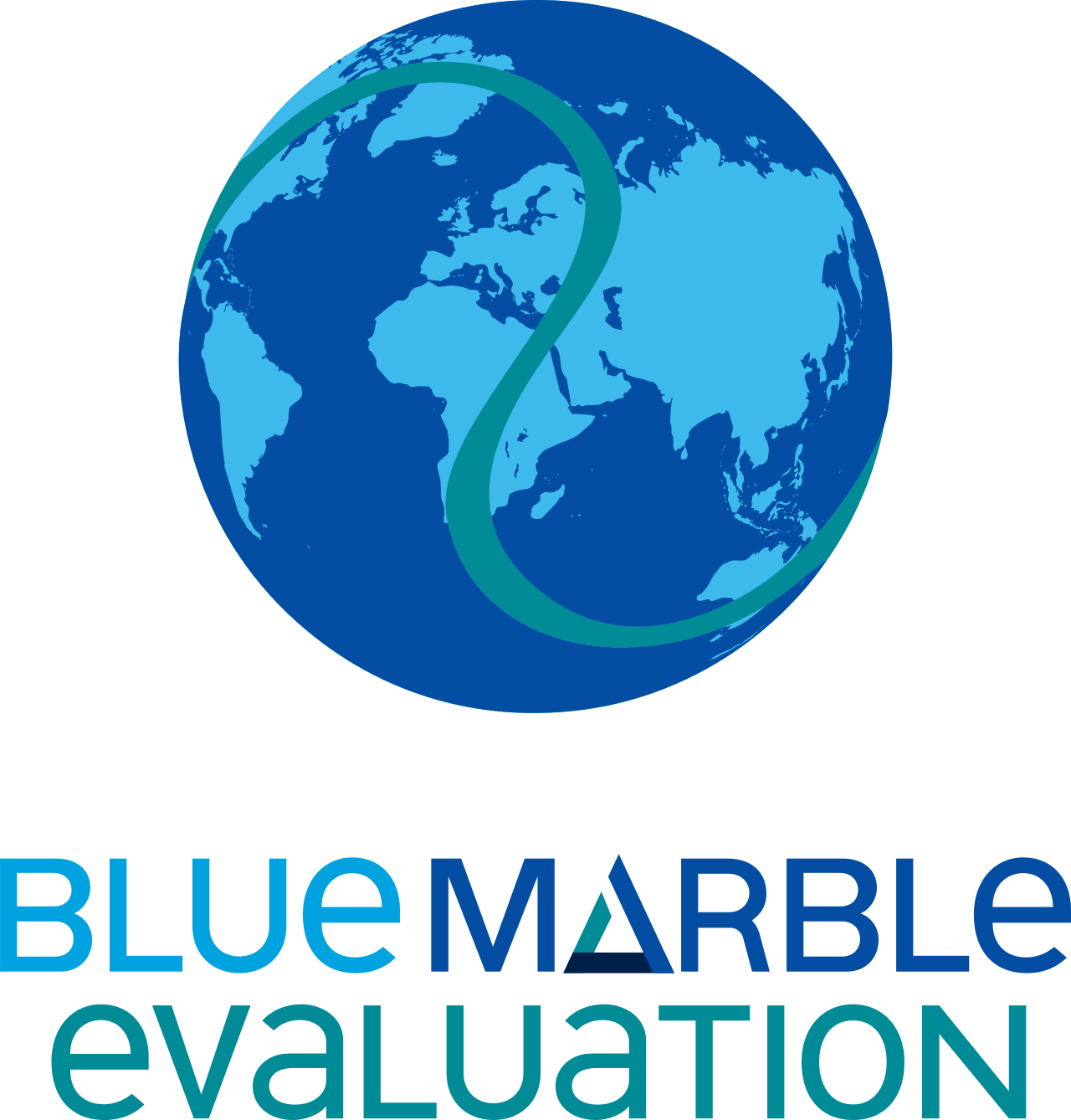At the end of February, as part of a speaking engagement on Blue Marble Evaluation in Charlotte, North Carolina, I had the opportunity to meet with a group of community leaders, activists, and scholars to discuss how we collectively and individually approach the climate emergency in our own work and our lives. The group included an elected official, community organizer, a feminist philosopher, religious educators from the faith community, entrepreneurs, nonprofit directors, and senior government employees. The group was multi-age, multiracial, multi-sectoral, and multiply interested, intrigued, confused, and concerned. Here’s how are two-hour gathering over coffee and bagels was framed:
One of the principles of Blue Marble Evaluation is connecting the global with the local. This includes connecting the personal with the global, zooming out to understand the big picture of what’s happening in the world and zooming in to our personal actions, ethics, and sense of responsibility.
Do we think that individual transformations in our personal carbon footprint matter, or are they insignificant in the face of the policy and structural changes needed?
In what ways do people think personally about the climate crisis and needed systems transformations?
The phrase, “Be the change you want to see,” is widely quoted. What does that mean for engaging the climate emergency?
I share this framing in case any of you reading this might want to convene a gathering of this sort both for your own benefit and to stimulate further thinking among people to whom you are connected. Fostering and facilitating such gatherings for reflective practice on the global emergency is one form of action. You would, of course, revise the framing to fit your own circumstances and relationships, but the overall thrust is to invite people to connect the global and local through the personal. For advance reading, I invited participants to read an article in the Sunday New York Times by reporter Cara Buckley (Nov. 15, 2019) entitled: Apocalypse Got You Down? Maybe This Will Help Searching for a cure for my climate crisis grief. You may also want to listen to February’s Blue Marble Evaluation webinar, in which Nora Murphy Johnson talks about what it truly means to have skin in the game, looking at how personal principles inform her evaluation practice.
The group discussion was intense and invigorating with everyone struggling in their own way to find a way forward that involves both personal action and work toward systems change. Finding the intersection of those pathways inevitably varied person by person, but acknowledging the need for intersection and dealing with both was widely shared.
The Charlotte discussion reinforced for me the importance of each person seeing and examining how the global climate crisis affects them, their family, their community, and, then, the world. Zooming out is made meaningful by zooming in.
Enter the coronavirus emergency
Health emergencies are up-close, personal, immediate, and urgent. The global climate emergency is far away, impersonal, long-term, and apparently far from urgent for most. Perhaps the pandemic will be a wake-up call for more people around the world about how global trends and patterns are interconnected.
The coronavirus pandemic brought these pathways together for me this week when I decided to cancel a work trip to Montpelier, France, where several cases of coronavirus have been reported. The decision was multifaceted: I had already contracted a stomach virus that was making the prospect of international travel problematic, both for myself and the possibility of passing it on to others at the meeting. I had also already been looking for ways to reduce my air travel in 2020 to lessen my own carbon footprint. Going to an area where the coronavirus was manifest meant that, when I returned, given the difficulty of determining infection, I would need to quarantine myself from family members and colleagues for at least two weeks as a matter of personal responsibility. Moreover, my role in the meeting was not critical, but part of the long-term and important engagement around Blue Marble issues. After considerable deliberation, I decided not to go.
I share this is as a matter of reflective practice in thinking through the multiplicity of factors that come into play when deciding what actions to take that connect our personal values with global issues, our personal behaviors with global trends, and our interpersonal engagements with global systems interconnections and transformations. The global is ultimately personal. The personal is ultimately global. We each weave our own thread through the global fabric. Much of that weaving is unconscious and clueless, simply following long-established patterns and pathways. The beginning of dealing personally with the global climate emergency is to move into consciousness and intentionality at a personal level so that we can bring that consciousness and intentionality to whatever work we undertake in support of global systems transformation. The global and local connect at a personal level, inevitably and intrinsically, because we all have skin in the game, the game being the future of humanity on Earth.
Photo credit Daniel Foster.


